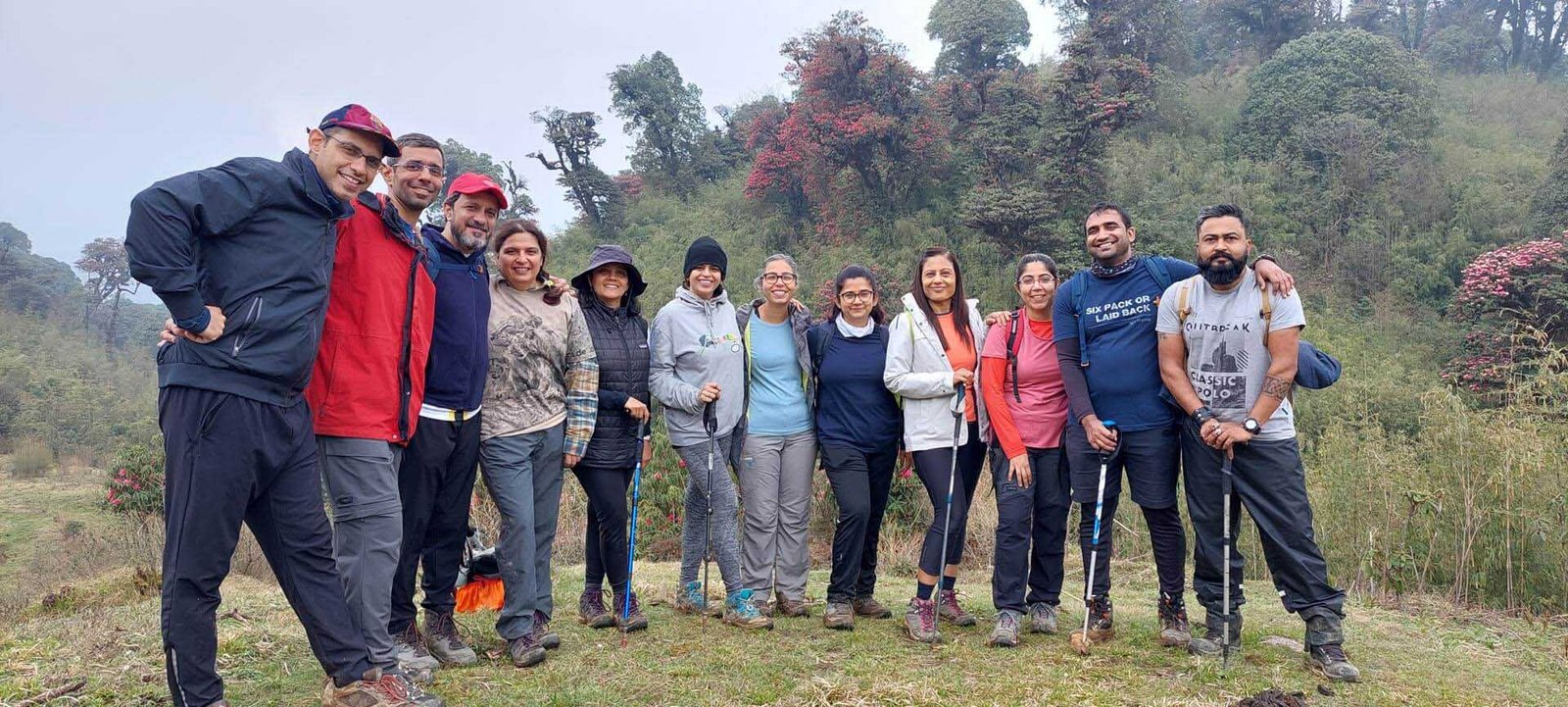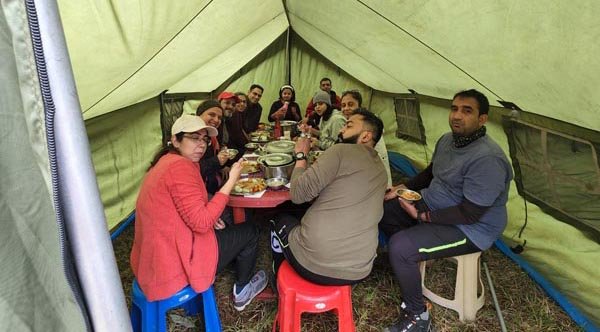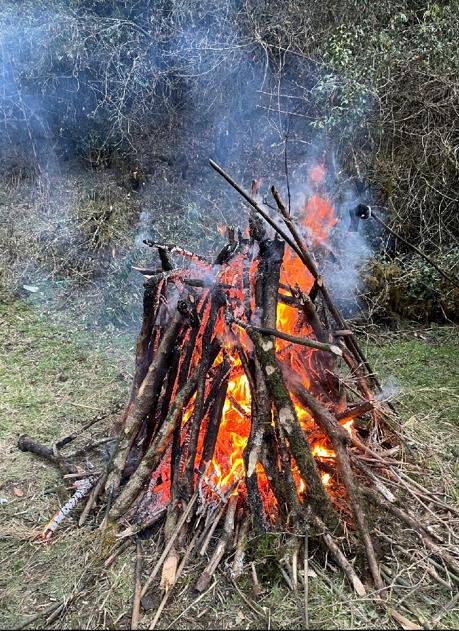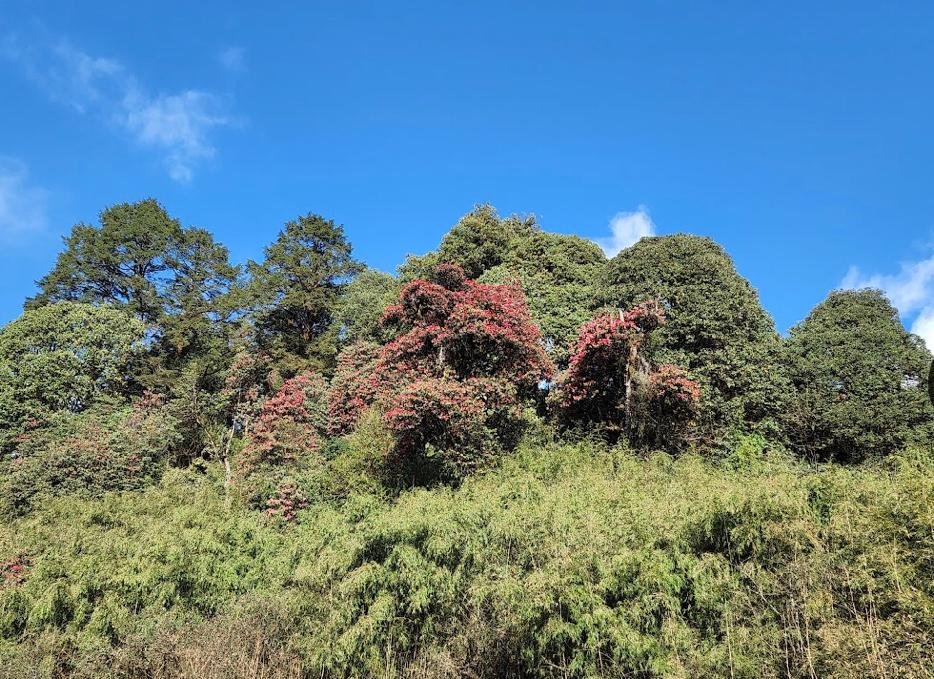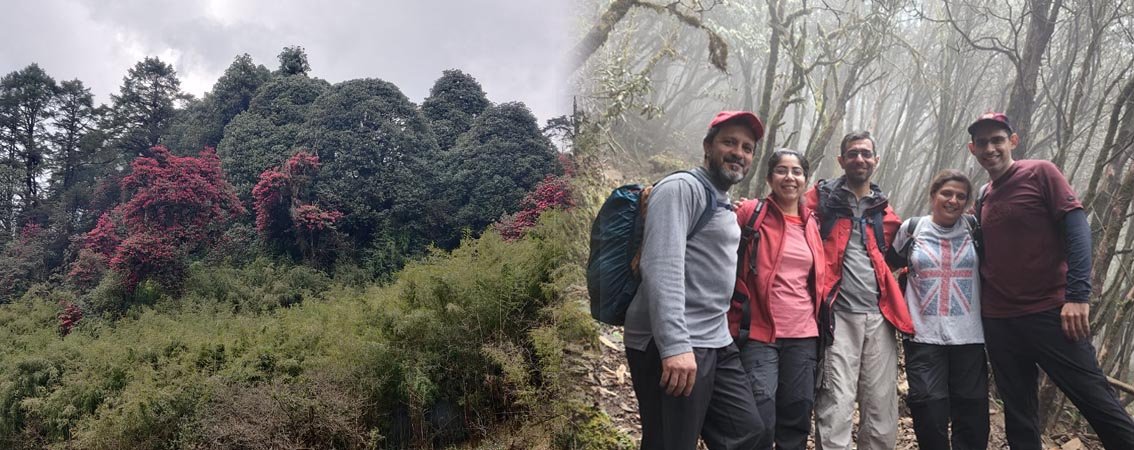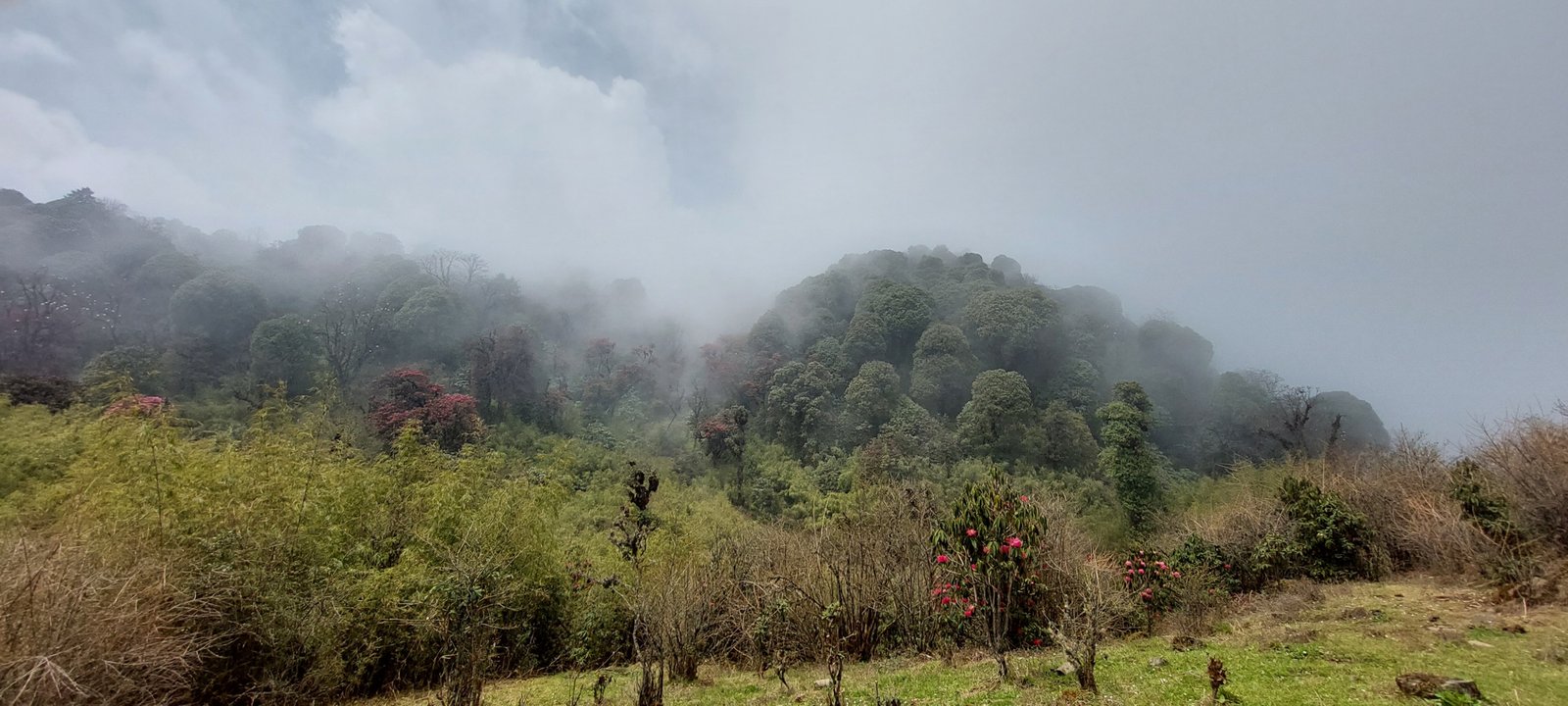How a young Parsi boy’s passion for nature is enthralling all age groups by offering travel experiences that are life altering.
“What made you leave your corporate job and focus on eco-travel in the North East?” I asked Piran, whom I huddled with in a tent at 10,000 feet above sea level with 10 other fellow trekkers and 2 bottles of rum to keep us warm. We were somewhere in the eastern Himalayas, ensconced in a pink and white (and every shade in between) rhododendron forest freezing our asses off.
“I found my job very dissatisfying,” he lamented over our candlelight dinner prepared by Firdos, a Nepali cook we had taken along. “The company had no leadership or vision, and going to work every day was drudgery,” he continued, adding a few endearing Parsi profanities. Eventually, he relinquished his fancy position as an IT executive and jumped at the opportunity to work for an NGO in the pristine climes of North Sikkim.
We were on the third day of our week-long adventure. A few days ago, we landed in Bagdogra, had hopped into three Innovas, and were driven 6 straight hours by budding Schumachers on serpentine roads along the edge of a cliff we were almost certain we were going to fall off. After having camped the night at a Sherpa Lodge, the next misty morning, we set off walking through woods whose beauty was reminiscent of those in Lord of the Rings.
We walked through dense foliage of bamboo and oak, breathing in the crispy air of the mountains until we reached our first campsite, pitched our tents, and set up a state-of-the-art toilet by digging a deep hole in the ground.
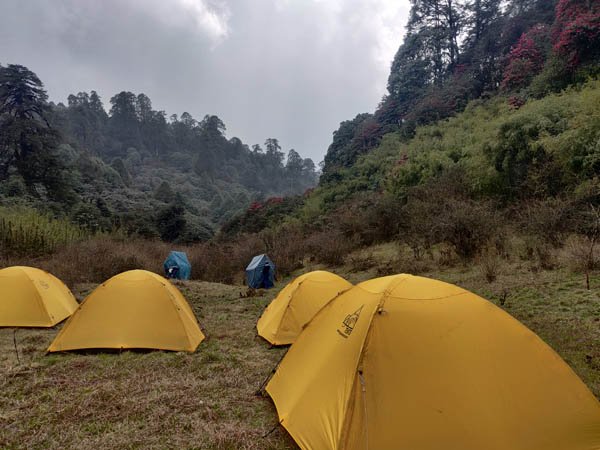
After having sipped on steaming hot thukpa (their famous noodle soup) and some more rum, it was time for dinner.
Piri, as we fondly call him, continued his story over dinner. “It was a community-based tourism project where I would work with the locals and help them develop alternate sources of livelihood,” he said with exuberant glee that brightened up our dining tent even more. “And then I got to work with the Bodo community in Assam. This community is prejudiced against as being violent and hostile but I haven’t seen kinder and nicer people,” he confessed giving us a previously unheard-of perspective of the place and its people. “That’s when I decided I want to show the North East to the world,” he said, munching on freshly cut jungle fruit for dessert. We went to sleep to the not-so-sonorous sounds of bells hung over the necks of grazing yaks and cows and some other animals that seemed like a mix of the two.
 We woke up the next morning at 5 AM to streams of sunlight peering into our chamber and a full bloom of rhododendrons outside. We had been warned that we weren’t going to bathe for a week, but the rest of our morning ablutions were permitted. After sipping hot chai and gorging on a filling breakfast, we packed our bags and started our trek along a route encrusted with silver firs, whose branches nestled beautiful birds we could hear but not see. We swatted all kinds of unnamed bugs and insects that kept getting into our clothes, and reached our next campsite late into the day. We were on top of a ridge where we were supposed to get breath-taking views of the Khangchendzonga range, but couldn’t because of the thick mist. It was cold enough for us to simply imagine being surrounded by prodigious snow-capped mountains.
We woke up the next morning at 5 AM to streams of sunlight peering into our chamber and a full bloom of rhododendrons outside. We had been warned that we weren’t going to bathe for a week, but the rest of our morning ablutions were permitted. After sipping hot chai and gorging on a filling breakfast, we packed our bags and started our trek along a route encrusted with silver firs, whose branches nestled beautiful birds we could hear but not see. We swatted all kinds of unnamed bugs and insects that kept getting into our clothes, and reached our next campsite late into the day. We were on top of a ridge where we were supposed to get breath-taking views of the Khangchendzonga range, but couldn’t because of the thick mist. It was cold enough for us to simply imagine being surrounded by prodigious snow-capped mountains.
Over another freshly prepared hot meal, Piran told us more about his venture. “After travelling around most of the North East over two years, I started Kipepeo in 2010. Kipepeo is the Swahili word for butterfly. I just loved the name,” he said with joy. “The venture promotes responsible tourism and provides so many sustainable livelihood options for the people here,” he affirmed.
“Didn’t anyone deter you from leaving your comfort zone, a sizable income, and all the perks of city life to set up shop in the middle of nowhere?” I asked. “Your calling is your calling, it’s not a conference call,” he said, quoting Emmanuel Acho. “Only you know that pure passion that burns inside you. But I was blessed to have received the support I did from my family,” he concluded. We warmed our hands and other delicate parts of our anatomy over a campfire the Sherpas lit for us that was to burn through the night.
After a day of walking through slushy fields, we camped in a nearby valley the next night. It’s always colder down in the valleys than it is on the mountain tops, but the enthralling views of the sprawling landscape make up for it. Due to the altitude, some of us had headaches, some had body pain, others had blocked noses. I had diarrhea (but that was probably from drinking water from the wrong end of the stream), so I called it an early night – but not before following a rigorous schedule of zipping myself into the tent, putting on my gloves and woollen cap, and then zipping into my sleeping bag. All was well until I heard a rumble from deep within, signalling that I needed to unzip my sleeping bag, get a hold of my torch, and expeditiously walk to our hole in the ground, on the hour. Every hour. It was as if I was playing the ‘diarrhea song’ on loop – “When you’re climbing up the mountain and your butt becomes a fountain – Diarrhea! When you’re climbing up a tree and it trickles down your knee – Diarrhea! The temperature dropped closer to zero with each hour that passed by.
The next morning, I was drained. “I wonder why we put ourselves through these expeditions when we could have simply had a luxury holiday,” I groaned at Mr. Elavia over breakfast. He laughed and said, “I don’t only do hikes and treks. We conduct all kinds of experiences: cultural, wild-life, festival oriented. I can design a boutique experience for you if you’d like me to, but there’s something marvellous about roughing it out in the wilderness.” I couldn’t help but agree, but ever the ham, I loudly pronounced, “If I die here, I want rhododendron flowers at my funeral!” But I was okay soon after I had popped a few pills along with some coffee powder and sugar, and was even well enough the next day to walk up to the Indo-Nepal border, a treacherous plod upwards and a hard climb on boulders and rocks that seemed to get larger as we climbed higher.
Through the trek, we spent our evenings telling stories about each other’s lives. Six of the group were lawyers, and we also had a French teacher, an engineer, and someone who specialized in natural substances – I’ll leave that to your imagination. We invented indigenous card games and played Dumb Charades. It’s amazing how no matter which group you play the game with, through all ages or religions, someone will always suggest enacting the title How to Make Love to a Negro Without Getting Tired.
After spending the last night amidst thunder, lightning, and a heavy downpour from the Gods above, we made a steep descent down to civilization, and finally – finally! – had a hot water shower. I returned home exhausted but renewed. “How is walking for days in the wild like this any fun?” my aging mother asked me, perplexed by my mid-life pleasures. I lagoaed a dialogue I read somewhere to her: “These mountains that we are all carrying, we are only supposed to climb.”
—————————————————————————————————————————————————————————–
If you want to explore the north east, you can reach Piran Elavia on +91 993 000 2412 or visit his website www.kipepeo.in

